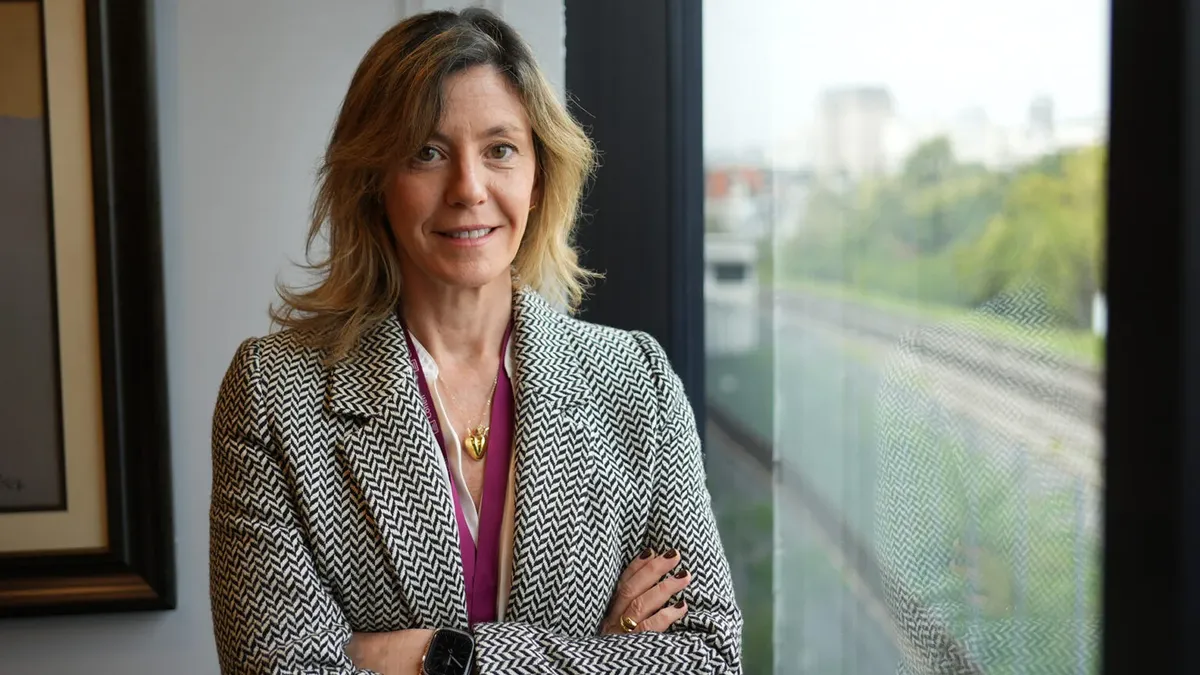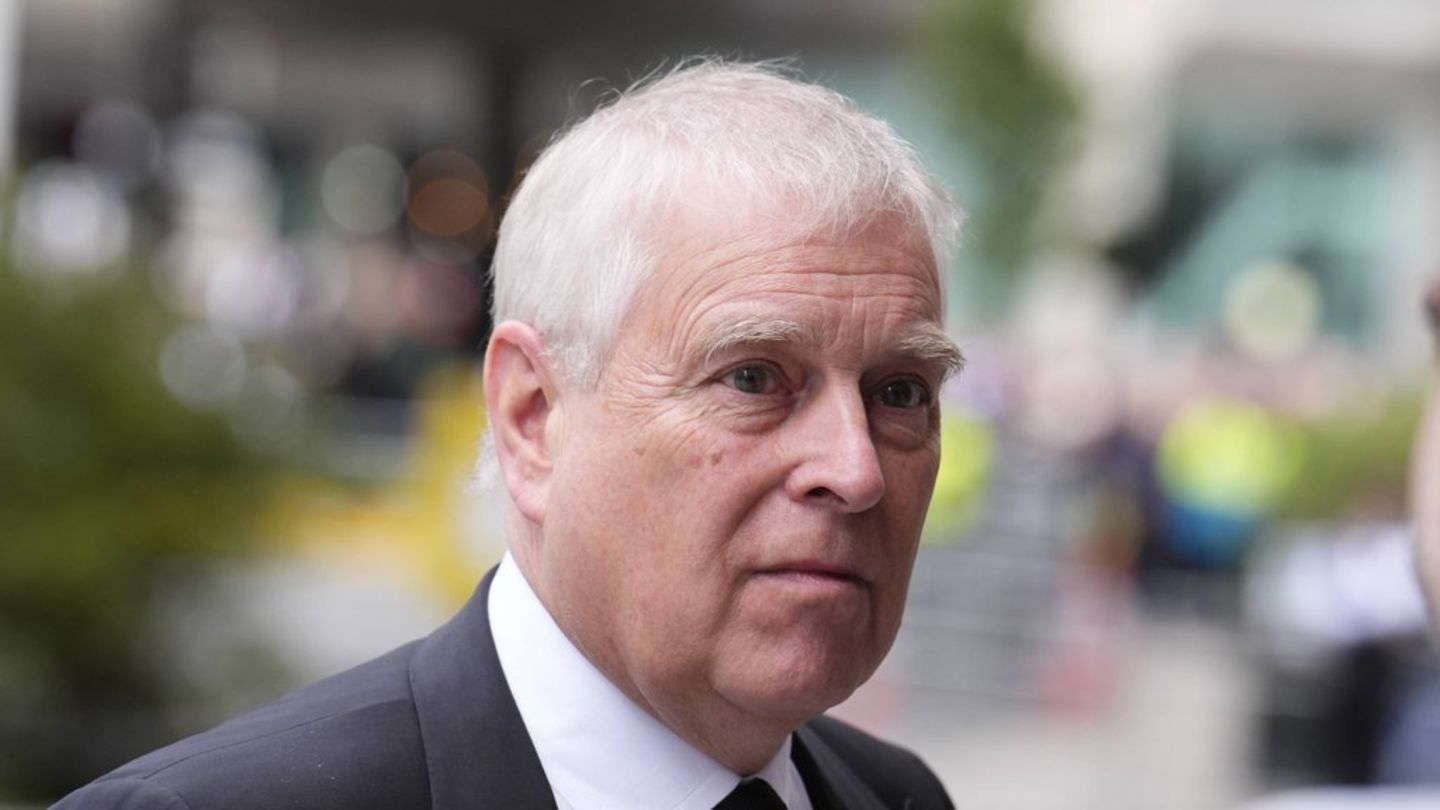Anna Cohenmember of the Organizing Committee of the 61st Colloquium and president of the Cohen Groupchatted with Scope on the role of markets in the consolidation of the business sector. He assured that it is necessary to carry out reforms such as labor and tax to grow not only the industry but also the financial sector and said that although in the stock market “You are the first to receive both good news and bad news”believe that Today the political factor weighs much more than the economic one.
“We need the consolidation of two markets that today are very divided between BYMA and A3 and the opening of Argentina to international markets”assured about the two milestones that he believes are necessary for the expansion of the stock market and also focused on education. “It seems to me that the businessman can have an enormous role there,” he stated. Regarding the humor of businessmen, he considered that there are dissimilar positions: sectors that have been hit hard and others that are about to take the field such as agriculture, energy and mining.
Journalist: What is the importance of Cohen’s participation in IDEA? What can the financial sector contribute to the debate?
Anna Cohen: IDEA is the area where the Argentine business community has a more long-term voice and less of a view of the situation and in that sense Cohen has a trajectory that begins, in its first version in 1938, and considers that a view that is not short-term is essential, this, despite the fact that the situation always affects us a little and because, In the financial market you are the first to receive both good and bad news and you see it reflected in prices and quotes. In short, IDEA gives us a connection area with the business community in Argentina that is trying to find solutions and opportunities to compete better.
Q: How can companies help and support each other in the financial sector? Sometimes it is said that the Argentine market is small, but there are several instruments that provide financing such as negotiable obligations and shares. Where do we have to focus?
AC: With a little luck, what you’re going to have are the tax and labor reforms that are beginning to bring longer-term investments in what is called Project Finance or financing of projects in the real economy And if you add to that some issue that brings us closer to the possibility of finding long-term institutional investors, for example, retirement funds, some pension reform, etc., that very small capital market that we have, The financial market should be expanded and deepened to somewhat assist longer-term projects.
That’s what I would like to happen. As I tell you, long-term reforms will be requiredbut I would like the talent of Argentines who work in the financial market to be recognized, because basically we are very imbued with speed and we know how to react well and apply intelligence in dysfunctional moments and scenarios, so to speak. Then you would have a spectacular combination of deep markets, solvent markets and Argentine talent directing investment towards projects.
We need the consolidation of two markets that today are very divided between BYMA and A3 and the opening of Argentina to international markets. We are seeing an unprecedented attempt at aid with the support of the American Treasury. But in the long term it would be better to combine talent and the market begins to find other longer-term influences.
Q: One of the things that is most talked about in the markets is the expectation of a reduction in country risk that allows access to the international credit market. Is this possible in the long term?
AC: My issue with the situation and what I see as very short-term and what I have been saying in recent days is that The concern that you see in the market today is more political than long-term and it seems to me that it responds to a binary situation of how next Sunday’s elections are going to take place. But if you have enough political support for the reforms that are coming, Argentina has no reason not to grow.
Q.: Today, taking into account that it is the last day of the IDEA colloquium, how did you generally see the investment mood of the different businessmen and the different sectors?
AC: Personally, I run with a strong bias because I am naturally optimistic about the Argentine business community. I think that of course there is a lot of self-criticism to be done and of course IDEA recognizes and raises that and says, “This year playing Argentina also means putting ourselves to work and learning how to compete better.” Obviously that There are requests for the political sector for these reforms that we need, lower bureaucracy, lower informalitybut also as an awareness of a competitive and collaborative spirit among us, also addressing challenges such as education.
What I was sort of sniffing around among businessmen is that There are quite disparate views of the situation and the momentyou still have different sectors that They are suffering from the microeconomic and macroeconomic situation. With a more organized macro, the micro begins to be seen and then you have sectors that are quite hit, we all know it and sectors that are thriving and ready to take on everything, such as mining, energy and even agriculture.
But the exercise of coming here for three days connects us with something more long-term. in which we are all going to push in the same direction and that is what permeates.
Q.: If you have to summarize what is missing, a tax reform has already been mentioned, perhaps a labor reform. What other points could be highlighted as important for the industry to strengthen?
AC: There are things that Minister Sturzenegger is already seeing in terms of deregulation measures and I think that the business community receives it very well and it seems to me that The fundamental debt here is with education because we are going to need talent applied to the businesses that are coming. In one of the talks we found out that Only 10% of children who start first grade finish secondary schoolit seems to me that the businessman can have an enormous role there.
In this matter of also putting ourselves on the front line. Education seems to me to be very important and the question of institutionality, establishing frameworks of trust and fair play from the side of justice, from the side of governance.
Q.: This was a complicated year, a lot of volatility in the markets. How does an entrepreneur in this context have a certain predictability?
AC: It is extremely difficult, I don’t know if there is a single answer, it seems to me that it is a bit of Argentines not to let themselves be overcome by uncertainty and know that, as Santiago Mignone also said, “today, governments change, volatility changes form, but businessmen are here and we continue.”
It seems to me that it is also a bit of turning around and seeing that your team is there, that you know that they support you, that they give you support and that you share many of your own doubts, vulnerabilities with people who are there to help you and to carry out a business. So I think that’s it. Do not despair.
Source: Ambito
I am a 24-year-old writer and journalist who has been working in the news industry for the past two years. I write primarily about market news, so if you’re looking for insights into what’s going on in the stock market or economic indicators, you’ve come to the right place. I also dabble in writing articles on lifestyle trends and pop culture news.




